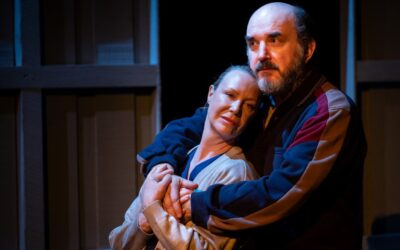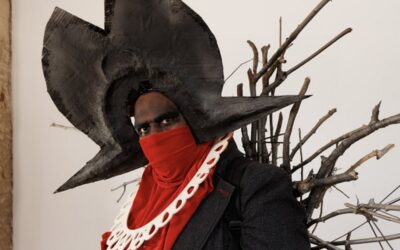By Darby Turnbull
I am in awe of the select few playwrights who have the ability to dramatically chronicle a moment in time and culture in ways that are compelling as a piece of art but also capture a feeling so innate, so specific that it offers a record so that that feeling won’t be lost. It’s the gift of the creative arts, that whilst we can take down facts as remembered or interpreted a piece of art is a portal in which we can access a somatic experience as catharsis or instruction.
Attempts at profundity aside, there have been many plays in the last few years that have depicted the changing language and discourse about rape culture; not much has changed but there has been a profound shift in the ways we engage with it as a culture. On this side of equator Emmanuelle Mattana’s Trophy Boys (returning to our stages later this year) incisively recreated how young men engage with their own culpability and attitudes towards sexual assault in a media landscape that many feel immersed in, the key being not with a motive of engaging with their toxic attitudes towards sex and consent but as a means of avoiding accountability.
Caitriona Daly’s play Duck, Duck Goose again takes a male perspective, also more evidence for my theory that AFAB (Assigned female at birth) individuals can write men with more insight and accuracy than they frequently can themselves. Chris awakens one morning after a drunken house party and briefly converses with Jane, a casual acquaintance who will go on to accuse his best friend Davey of raping her. Chris’ response, as neither the accused or the accuser will have major ramifications for his family, friends and community.
Daly’s deft characterisation brilliantly weaves in many illuminating encounters that brutally capture the social, cultural and media landscape of sexual assault allegations. Chris’s magnetism comes from how ‘normal’ he is, he’s one of the boys but somewhat shielded from their worst excesses but still participates in ‘harmless’ banter and is a passive and willfully obtuse witness to the culture of casual misogyny and grim inevitability of sexual violence against women. A lesser play would use these interactions as ‘teachable’ moments in Chris’ journey to becoming an ally. This would mean a linear and frankly dishonest play and Daly has the strength in her convictions to not give Chris an inch and mercilessly scalp away at the micro and macro pillars that hold up his unquestioning decision to believe Davey over Jane and go out of his way to protect him. Mitchell Holland’s performance is superbly understated yet palpable in his growing awareness and deflection of the insidious truth in the harms he’s complicit in. Time and time again he’s offered the opportunity to not align himself with the allegations and take the steps to engage with what the women around him are telling him and he responds with virulent misogyny that surprises even him. Holland’s performance is a slow burn but exquisitely paced.
Timothy Wynn’s production is an invigorating and bold presentation of this material that pays off with aplomb. Much of the play takes place under the glare of social media, the sharing of information and misinformation Mikalah Looker’s designs bring it scintillatingly to life in a relentless stark playing space that resembles the inside of a phone. Arielle Roberts’ stark lighting leaves nowhere for the actors to hide and they all rise to the occasion with distinct, profoundly detailed performances.
Rachel Nutchkey only makes one brief appearance as Jane, but she has the essential magnetism to ensure that Jane’s presence casts a long shadow over the production. Daly very adeptly conveys how when society takes a side against a contested event, especially sexual assault, the person who experienced it gets lost as a narrative is built around them and views are imposed or projected onto them. Nutchkey is very strong at conveying the anger and outrage of many women in the community who have taken on Jane’s cause as their own.
Matt Domingo as Davey, the accused treads a very fine line between glaring chauvinism and blank insistence in his own innocence. He allows the audience to sit in the ambiguity alongside Chris and so does Daly’s writing. They each show how seductive it is to believe this man when he says he’s innocent and pity him for being shunned by the community after the taint of accusation. Daly very clearly questions whether carceral or mob justice is really effective. She doesn’t provide pat answers, but she lets the question linger. Both writer, performer and director are wise enough to know that rapists don’t necessarily look like mustache twirling villains; they can be people we like, trust, benign, charming; what’s terrifying is they can be both.
Ilai Swindells takes on a few distinct roles, each delving into the uglier sides of the unfolding events; Andy their more ostentatiously sexist friend who spouts the familiar rhetoric, and Leo an opportunistic radio host who has a history with the friend group as a male victim of their bullying. It can’t be overstated how seamlessly Daly and this production weave in the many tangibly noxious threads that contribute to the pervasiveness of toxic masculinity.
Emily Carr as Chris’ sister Sarah who tentatively aligns herself with the men tellingly portrays a person’s ability to act against her own instincts, Sarah is someone who’s lost with very few supports and like Chris doesn’t want to engage with the possibility that people she’s personally fond of are capable of the harm they’re accused of despite being viscerally acquainted with the experience herself.
Finally there’s Jeandra St James, who for two thirds of the play is kept offstage and briefly owns the play with a blistering monologue that acts as the thesis statement for the play, about the inability to look at what’s happening right in front of you even as someone is being exploited and hurt in your direct line of sight and how it’s a choice not to intervene because that would mean acknowledging it exists. Like Nutchkey she makes an indelible impact with a relatively brief but exquisitely drawn character and her pacing and modulation of her emotional journey will undoubtedly imprint on the memory.
St James also takes on a pivotal role in the climax. I’m not sure whether the doubling is specified in the script or was the production’s discretion but the characters who are doubled all provide tangible and potent insights into their intersecting types.
The attention and care that’s gone into this production make it an early highlight for this year. The innovation of the staging, incorporating projections and surtitles provide both accessibility and also a strong artistic choice given the plays frequent focus on how privacy in an online space can never be relied upon. There were a few pacing glitches on opening night but I’m sure they’ll smooth out as the season progresses.
It’s a real thrill to have ‘That Production Company’ visit us from Queensland and bring this brilliant, visceral Irish play to Australia. Duck, Duck Goose is an essential piece of theatre that relies on the audience to sit with their own discomfort but also validates that the codes, evasions and sheer messiness of our interactions as a society aren’t a singular experience, it’s a play that demonstrates rather than just says…me too.





